Sleep Issues and Sleeping Pills Comparison
The National Sleep Foundation reported some disturbing news as of recent: “45% of Americans say that poor or insufficient sleep affected their daily activates at least once in the past seven days.”
An average night of sleep for Americans is 7 hours and 36 minutes.
On weekends or days off, it tends to only be 40 minutes more.
The Seriousness of the Problem
Evidence from other countries surveyed suggests they get more sleep than the U.S. 53% of Americans sleep less than 7 hours on work nights while other countries such as the United Kingdom, Germany, and Canada all show better sleep records.
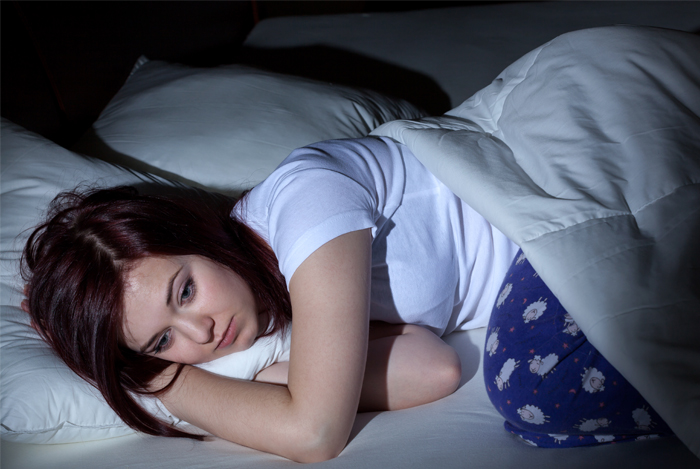
There seems to be a dominant trend when it comes to sleep.
The National Sleep foundation reports that poor sleep was tied to poverty and below-average health.
Americans with an income of $20,000 or less a year have more trouble sleeping.
Lack of education also appears to be a factor. (2)
Americans are getting less sleep and this problem is commonly overlooked.
These sleep disorders are “hindering daily functioning and adversely affecting health and longevity.” (3)
Yes, daytime sleepiness is a concern, as is insomnia or many other sleep disorders, but, contrary to popular belief, it is having effects on other aspects of life.
This problem is more widespread than ever.
Less than 7 hours of sleep per night can lead to the following list of problems:
- Obesity
- Diabetes and impaired glucose tolerance
- Cardiovascular disease and hypertension
- Anxiety
- Depression
- Alcohol abuse
Studies indicate that these problems can be directly linked to your sleep pattern.
The worse your sleep pattern, the more health problems you experience. (3)
25% of Americans report never or rarely getting enough sleep, and 80% to 90% of sleep disorders go undiagnosed. (1, 3)
It is a world of limited sleep, but perhaps the answers to the problems you face are laid in front of you.
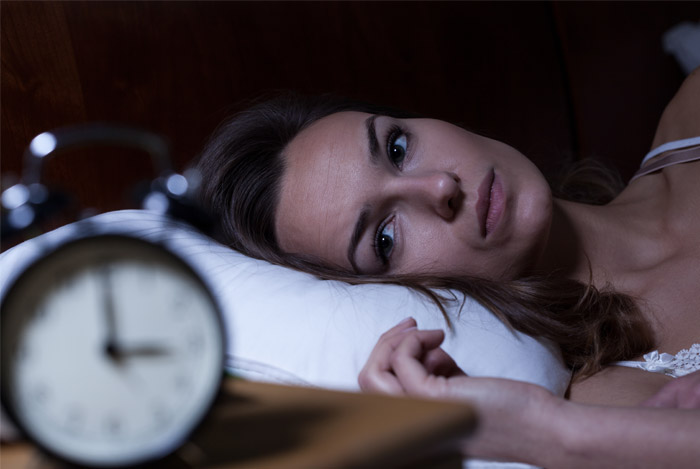
Problems that Plague College Students
Large amounts of stress are also a contributor with less sleep.
College students have a great amount of difficulty when it comes to proper sleep habits.
In a world where 50% of college students report feeling tired during the day and 70% claim they do not get adequate sleep, it is understandable that they are under a lot of pressure and stress.
What are students worried about?
Everything and anything.
It could be the next test, their GPA, or even student loans.
Students have a lot of weight resting on their shoulders.
70.6% of all students state that they get less sleep than the 8-hour recommendation.
Daytime sleepiness is also a concern. (4)
High school and college students also have between 1 to 3 hours less sleep than suggested.
This could actually be the effect of something called the Two-Process Model of Sleep regulation.
This process is described as affecting the length of wakefulness through hormonal secretions.
These hormonal secretions give younger people an increased drive that effects their bodily functions and permits them to get less sleep.
College students can often restrict sleep when they “pull an all-nighter.”
This is an attempt to cram as much information into their head as they can for a test, staying up all night in the process.
However, evidence shows that this could be an arbitrary effort.
A direct quote from a journal states, “… All-night study sessions are the wrong plan for improved grades and learning.” (4)
Tests were conducted to display students’ memory and learning related to academic success.
For one test, students were shown a screen with letters, numbers, shapes, or objects.
The purpose of this test was to see if students who disregarded sleep had some or any progress.
The end results displayed that their memory was not progressive.
Another study displayed what type of progress was made with motor task skills after being awake for long periods of time.
Those who had proper amounts of sleep improved.
In fact, the improvement rate was an average of 18% compared to those who had inadequate sleep habits.
In another study, students’ memories were tested with image recognition to see what role sleep played on learning abilities.
Those that were sleep deprived showed a glum outcome compared to those that were well-rested.
In fact, those that were well-rested showed an improvement of two letter grades. (4)
From the evidence gathered, it would be correct to assume that your mind functions at a much higher level when well-rested.
On the other hand, the correlation between GPA and sleep is still not recognized, but it would be safe to assume that a good night of sleep does provide greater functioning.
Substances in Student Life
Many college students are drinking alcohol.
In fact, 4 out of 5 students are drinking, with 40% claiming they binge drink. 11.6% of students used alcohol as a way of falling asleep.
Keep in mind that alcohol causes sleep disturbances and can affect your sleep habits in a negative manner. (4)
Surprisingly, caffeine and energy drink consumption is not only on the rise, but could be affecting college students in a negative manner.
Drinking coffee or other caffeinated beverages can cause more sleep disturbance than many people realize.
It actually affects sleep for an average of 5.5-7.5 hours a night.
This means that if you drink caffeinated beverages during the afternoon, it could affect you later in the day.
Coffee, of course, effects your alertness and limits your sleepiness.
What is the major source in energy drinks that make you “pep up?”
Actually, it is believed to be the effect of caffeine.
Some energy drinks can contain other items to sustain from sleep, such as vitamins or herbs.
This industry is actually now worth $3.2 billion and has heavy usage among young people. (4)
Stimulants are also on the rise.
Drugs, such as Adderall are rising into great usage.
In fact, many students do not even consider stimulants as harmful even though they are a schedule two drug and are illegal without a prescription.
To students, it is just a way to stay up at night, concentrate, and improve grades.
However, the fact remains – it is an unhealthy way to deal with alertness and it is as a concern to many. (4, 5)

Lack of Sleep and Obesity
Is weight gain associated with less sleep?
You may be surprised by the answer.
Yes, the indication is that those who get more sleep generally weigh less.
A 13-year study was conducted with the mission of testing to see if obesity was related to sleep.
It had some startling news.
If you sleep less than 6 hours a night, it means you are 7.5 times more likely to have a larger body mass.
These answers come after including items with important factors such as family history, physical activity, and even demographics.
A different study with 1,000 adults concluded very similar results.
The less you slept, the higher your body mass. Why is this?
Well, the answer comes with a hormone called leptin and a peptide known as ghrelin.
Leptin helps the body limit your appetite, while high levels of ghrelin in the body stimulate the urge to eat.
Accordingly, a low number of leptin induces hunger.
Therefore, your leptin is lower and ghrelin higher due to a lack of sleep.
This explains the greater body weight.(3)
This is a worry for society as a whole.
A reliable document source says, “Taken as a whole, the body of evidence suggests that there is a serious public health problem.”
Yet, you may ask “why?”
As our society demands less hours of sleep, obesity will steadily rise.
Obviously, with less sleep, the conclusion is that there is more potential for unhealthy diets. (3)
Mental Health Related to Sleep
Sleep disturbance and psychiatric problems can go hand-in-hand.
In the mental health spectrum, an estimated 50% – 80% suffer from sleep disorders.
In fact, it is hypothesized that mood disturbance is one of the greatest problems pertaining to sleep disorders. (6, 3)
Originally psychiatrists believed that mental illness led to sleep disorders, but now it is acknowledged that the opposite may be true.
Sleep disorders may be leading to mental illness.
The following are types of mental illness and how they relate to sleep disorders.
Depression
Sleep problems are prevalent in the mental health field.
65% of adults have major depression and 90% of children suffer from sleep disorders.
A person who has sleep disorders and depression is not as likely to be helped by medicine such as antidepressants, compared to patients who are depressed without sleeping disorders.
Another astonishing fact is people who continue to have negative sleep conditions and are depressed have a higher rate of suicide than those who suffer from depression only. (6)
Bipolar Disorder
Studies indicate that a person suffering from bipolar disorder generally has less sleep before an episode of mania or bipolar depression.
Anxiety Disorder
Anxiety disorders such as PTSD, OCD, and panic disorder, among others, are affected by sleep.
Statistics show that anxiety disorders involve less people who suffer from insomnia alone than those who suffer from depression and insomnia.
People who suffer from anxiety disorders generally have a harder time falling asleep and sleep lighter.
For post-traumatic stress disorder (PTSD), insomnia can worsen symptoms and add challenge to recovery. (6)
Attention Deficit Hyperactive Disorder
This diagnosis invokes items such as trouble falling asleep, less sleep, and restfulness.
ADHD is much more common in children.
Nobody is sure why sleep and psychiatric disorders go hand-in-hand.
It could be a consequence of a physiology disorder or genetics, but the truth is that nobody is positive. (3)
Weird Facts that Help You Sleep
- Of course, it is a good idea not to use electronics before bedtime. Yes – it can cause wakefulness, and yes – it can be stimulating. However, do you know another reason why this practice could keep you awake? It has to do with something called photoreceptors in the retina. The photoreceptors distinguish between the light and dark. Our body reacts to the morning light as it produces a wakeful sense of being. (7)
- Yes – it is always wise to avoid coffee before bed, but have you ever considered not smoking cigarettes prior to sleep? They are not only a stimulant, but the effects can last hours. Another good reason is because nicotine can cause bad dreams. (9)
- Have you ever heard that it is best to sleep in cooler temperatures? There may be some truth to this. The preferable temperature is between 60- 68 Fahrenheit. The idea is that it lowers your core body temperature and your body responds by causing drowsiness. (10, 11, 12)
Studies even prove this as a fact. Insomniacs generally have higher core temperatures than regular sleepers.
Higher core temperatures mean easier arousal and a difficult time falling asleep. (10)
Of course, there are a number of tips that most people know:
- Do not look at your alarm clock because it will just create anxiety; therefore, you should face it away from you.
- Make your bedroom for one purpose – to sleep.
- Do not watch television in your bed or do anything else that is not sleep-involved. The idea is that you will convert your body into the understanding that your bed is meant for one thing – sleep.
- Do not drink too many fluids so that you do not have to use the bathroom late at night.
- It may be a good idea to try meditating. This is a very healthy and calming way to handle situations.
- Lastly, get comfortable. After all, you will be sleeping in your bedroom.
All of these examples are known as sleep hygiene. (12)
Narcolepsy
Is this term new to you?
Narcolepsy is a type of sleeping disorder that affects 1 in 2000 people.
It usually surfaces in adolescents.
It is a sleep disorder that is characterized with heavy sleepiness during the daytime that can even result with falling asleep suddenly.
This may occur at school, work, and even while driving; the person suffering has no control over this condition.
Even after having a peaceful night of sleep, the disorder does not improve.
Other symptoms of narcolepsy are the inability to move for an average of a minute when awoken, or even hallucinations at the beginning or end of sleep.
Recently, progress has been made in assessing this problem.
An area in the hypothalamus (the front part of the brain) is the culprit for this disorder. It is been termed as the orexin. (13)
Yes – there are drugs to treat this, but the overlaying problem has not been fully taken care of.
Currently, new drugs are being marketed with a focus on H3 receptors in the brain.
As of now, the condition is treated with some stimulants (or stimulant-like drugs) and antidepressants, as they are believed to supply some chemicals that are needed for regulations.
After reading all this, you must be exhausted.
However, if you have a little energy in you, proceed to the next discussion.
I do not want you to lose sleep over it; therefore, it will always be here tomorrow.
Sleeping Pills Comparison
Surprisingly, 20% of Americans use some form of sleep aid.
These include prescription drugs, over the counter, and even alcohol.
Sedative-hypnotics is the term given to refer to medicine that is specially created for sleep.
This category of medicine refers to prescription drugs.
Melatonin
Melatonin was discovered in 1958.
Aaron Lerner discovered melatonin, but never imagined the significance of this hormone to be so great. (14, 15)
This hormone comes from the pineal gland within the brain and its purpose is to regulate your body’s natural clock.
How does this work?
Actually, when you wake to the light or go to bed in the dark, these occurrences have an effect on your body.
Your body’s natural clock speeds up when it is introduced to light and makes you more sedated at night.
Your body produces more melatonin based on what part of the day it is or, rather, if it is morning or nighttime. (15, 16)
The hormone can be used to battle insomnia, shift work, jet lag, and a number of other periods to be encountered in life.
Not only is it completely natural, but it is impossible to overdose on.
This can be a calming factor for many people; it is also entirely natural in form. (15)
Melatonin can be very helpful for insomnia.
Taking this supplement at the right time could be the answer to a night of sleep.
A study demonstrated the effects of melatonin when taken 30-60 minutes before bedtime.
Evidence showed that it actually had a positive effect on providing sleep, as opposed to placebo.
Studies provide evidence that melatonin may be most effective with people aged 55 or older.
334 people at this age displayed positive results.
This group could fall asleep better, felt well-rested in the morning, and showed improvements in their day-to-day lives. (15)
The most common melatonin side effects include:
- Daytime sleepiness
- Headaches
- Dizziness
You must talk to your doctor before starting to take melatonin.
It may be a natural hormone, but it’s still best to be safe.
The following are items that could interact negatively with melatonin.
- Blood-thinning medications (anticoagulants)
- Medications that suppress the immune system
- Birth control pills
Furthermore, if you do take melatonin, be careful about where it comes from.
Not all sources are reliable enough and it would be wise to stay away from supplements that are made from animal sources as they are oftentimes contaminated.
To sum up, make sure and talk to your clinician before starting treatment with melatonin.
It is actually advised that the hormone should not to be taken for more than a two-month period.
Moreover, do not drive or operate machinery until you know what effect this medicine has on you.
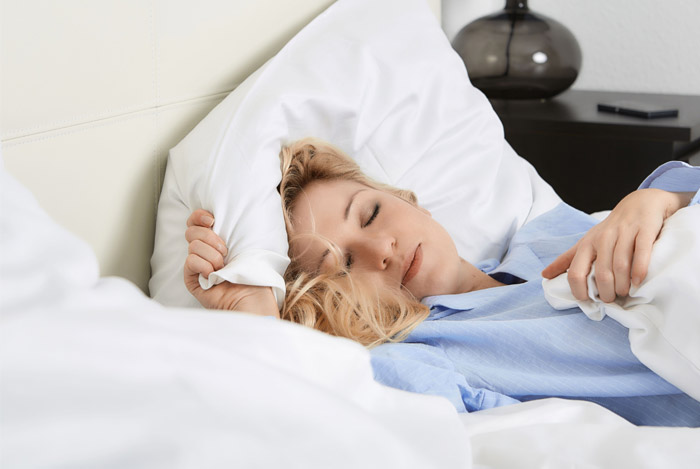
Rozerem
Have you ever heard of Rozerem?
It is a prescription that works similarly to melatonin in the brain.
It is, in a way, natural medicine in terms of how it works.
However, you must have a prescription to obtain it.
If melatonin does not appear effective, you may want to try this medicine.
This is especially true if you want a relatively natural way to solve your sleep issues.
This medicine is typically used at night, 30 minutes prior to sleep.
Normally, one pill a day will suffice.
Such procedure should help improve insomnia after around 7 or 10 days.
Rozerem causes drowsiness; therefore, it’s a good idea to complete any tasks you may have to do before the day’s end and be completely ready for sleep. (17)
Rozerem works on the same receptors as melatonin.
In addition, it is a non-habit forming medication, which some people find to be extremely beneficial.
At some point, there will definitely be a follow-up article to discuss, in more detail, both the advantages and disadvantages of these types of medications.
In conclusion, sleep is an important and healthy part of our lives.
Our society needs to understand this in order to have a healthy and proper route to experiencing less stress.
Ambien
Ambien is a schedule four drug that was introduced to Europe in 1988 and brought into the U.S. market in 1993.
It is categorized with benzodiazepines such as alprazolam (Xanax), diazepam (Valium), lorazepam (Ativan), and a handful of other medications. (18, 19)
The number of zolpidem (Ativan)-related emergency room visits in the year 2005 was 6,111; in 2010, this number increased to 19,487. That is a rise of 220%. (20)
Women made up 68% of emergency room visits concerning Ambien in 2010.
Furthermore, people 45 or older represented 74% of the documented emergency visits; 50% had other drugs in their system when they arrived at the hospital. (20)
America has a problem!
9 million people take sleep aids in America.
What is worse is that prescription sleep aids are still on the rise and the statistics are showing a growing concern. (20, 21)
Zolpidem has been rising in popularity and has become one of the most prescribed drugs in the United States.
It can be a very effective medication, but what makes it effective can also be addictive.
Ambien has tolerance gain as well.
This means that the recommended dosage will be effective for you only initially.
With time passing, its intake would need to be increased in order to provide the desired effect until things may get out of hand.
Ambien has a lot of good qualities and is not entirely bad.
There are many people who take this drug in a productive manner without any issues.
It could be the right medication for you.
As far as sleep goes, it can be very effective.
Ambien can be fantastic in fighting trouble with sleep due to the stressful situations life brings upon you.
Ambien has some side effects: dizziness, daytime drowsiness, memory loss, mood changes, depression, abnormal thought, confusion, agitation, anxiety, among many others.
It’s understandable that by looking at this list, you may think that this medicine is too risky to take.
However, it’s important to know that every medication has some side effects and Ambien is no more problematic than many of its kind.
The chances of you having serious problems taking Ambien are not that great.
Ambien CR (controlled release) was first introduced in 2005 in the United States.
It works very similarly to Ambien, but instead of only effecting you immediately, it now serves two purposes.
Ambien C.R. has an instant release that puts you to sleep, but it also keeps you asleep, which is the major modification in the drug. (19)
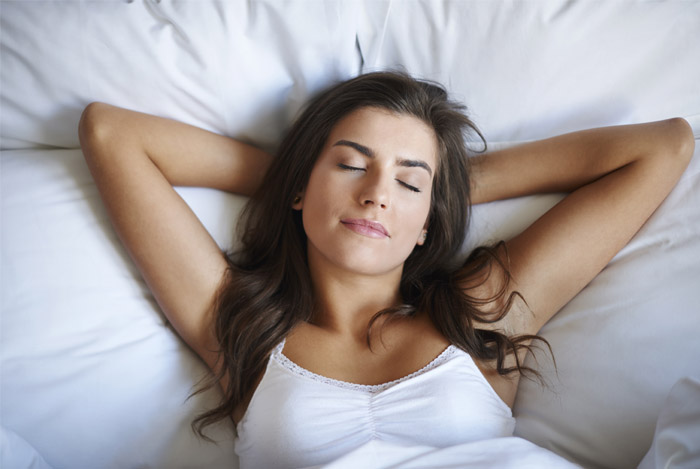
Temazepam (Restoral)
Restoral is a drug to treat insomnia and it’s also in the class of benzo’s.
Studies have proven that Restoral not only induces sleep, but also keeps people sleeping.
Unlike many other medications, it has both short- and long-term effects.
A blind study with 12 patients showed that temazepam was not only effective, but also had “no detrimental effects on daytime function the following morning.” (23, 24, 25)
This medication lasts for 7-8 hours; it also has a half-life of 10-15 hours, which represents how long it remains in your system. (24, 25)
In some studies, Restoral was not as effective as Ambien.
Ambien showed to be a better sleep aid when compared to Restoral and a placebo pill.
The study that proved Ambien had better results was conducted with 630 individuals. (26)
Like with Ambien, you should be careful with this medication.
The two are in a class of medications that can produce both tolerance and addiction.
The following are some side effects:
- Hangover effect (feeling groggy the day after you take temazepam)
- Drowsiness
- Dizziness
- Nausea
- Vomiting
Some side effects can be serious.
If you experience any of these symptoms, call your doctor immediately:
- Rash
- Hives
- Swelling of the face, throat, tongue, lips, or eyes
- Hoarseness
- Difficulty breathing or swallowing
Be careful with this medication and talk to your doctor about it.
Yes, it can be a very great medication for sleep, but be cautious. (24)
Estazolam
Estazolam is a benzodiazepine used to curve insomnia.
It acts on the GABA receptors in the brain and also increases dopamine.
It can be great for falling asleep rapidly and even keeping you asleep.
However, because it can be highly addictive, doctors recommend to inform them if you have a history of addiction or if you drink alcohol.
In addition, tell your doctor if you suffer from depression and take prescription medicine or even nonprescription medications. (19, 24)
Some common side effects:
- Hangover effect (grogginess)
- Drowsiness
- Dizziness
- Weakness
- Dry mouth
- Constipation
- Aggression
- Agitation
- Changes in behavior
- Slowed or uncoordinated movements
- Muscle stiffness
- Leg pain
Signs of overdose:
- Sleepiness
- Slowed breathing
- Confusion
- Loss of coordination
- Slurred speech
- Coma (loss of consciousness for a period of time)
Halcion
Halcion is another drug in the class of benzo’s.
It can be addictive, too.
However, if you take it appropriately, it can be a great aid for insomnia.
It is a pill which works best on an empty stomach.
Since it is very fast-acting, make sure you are in bed with the intention of sleeping when you take Halcion.
This medication is not meant for long-term usage.
Your clinician will be best-suited to decide how long the pill is to be used.
If you’ve started taking this medication, do not stop before talking to your doctor.
Termination may bring about withdrawals and the doctor will be the best individual to decide what route to take in this case.
Upon seizing the intake of Halcion, you may not be able to sleep for several nights as your body readjusts.
Of course, be mindful of taking only the required dosage and remember: this drug is tolerance-building as well.
This means that its effect may wear off with time and a higher dosage will be required. (27)
Triazolam (Halcion) may cause side effects. Tell your doctor if any of these symptoms are severe or do not go away:
- Drowsiness
- Dizziness
- Lightheadedness
- Headache
- Problems with coordination
- Nervousness
- Tingling of the skin
- Nausea
- Vomiting
Make sure this medication is kept away from children and be careful to take only the dosage that the doctor recommends.
Doing otherwise may result in harm.
The following list provides signs of overdose. (27)
Symptoms of overdose may include:
- Extreme drowsiness
- Confusion
- Problems with coordination
- Slurred speech
- Slow or difficult breathing
- Seizures
- Coma (loss of consciousness for a period of time)
Non-Addictive Medication
There are many drugs out there that are non-addictive and can be used to treat insomnia.
However, there is a catch – a lot of them are used in the psychiatric community and are prescribed off-label.
This means that while they were not meant to treat insomnia originally, these drugs can be very effective for this purpose.
Remeron is an atypical antidepressant.
It effects the brain chemicals dopamine, serotonin, and norepinephrine.
However, although it is an antidepressant, the off-label usage for sleep can be practiced.
Remeron can also be used to treat OCD and anxiety.
When it comes to sleep, it can be very effective as well.
One source says that it “has been shown to improve the percentage of time in bed spent asleep.”
Mirtazapine (Remeron) is associated with the ability to treat insomnia in people who are depressed.
Therefore, it may not be as helpful for typical insomniacs.
Remeron is far from being the only drug in this category.
In fact, a large number of drugs are used off-label to treat insomnia.
You do not have to take a high dosage to gain positive outcomes.
Actually, the lower the dosage, the higher the potential for sedation.
There can be some negative side effects to watch out for.
Remeron can cause hunger and weight gain in addition to increasing cholesterol.
These are just some important side effects that you should discuss with your doctor.
It is not habit-harming at all and can be a good sleep aid.
If you are concerned about medicine that can potentially develop an addiction, this may be the medication for you.
Though it is an antidepressant, do not let that stop you from trying it.
Vistaril
Vistaril is another non-addictive sleep aid.
It can be used to treat anxiety, nausea and vomiting, or itching.
It is similar to Benadryl.
Consider it as a rather heightened form of Benadryl.
Vistaril can be sedative and is another drug used off-label.
A number of sources list it as a good aid for insomnia.
If you overdose on the medicine, it can create sedation and may even cause hallucination.
However, when taken properly, it can be used effectively to treat insomnia.
It also creates the potency of many medications such as opioid drugs.
Sometimes, it is even prescribed with certain drugs to create a more potent effect without raising the level of other medications.
For example, Vistraril can make benzodiazepines or barbiturates more effective.
As usual, you should not use this medication without talking to your doctor and making sure you are not allergic to it.
It is non-habit forming and does not create tolerance.
The side effects of Vistaril are generally mild and don’t last long.
They include:
- Drowsiness
- Fixed drug eruptions, or isolated red or purple lesions on the skin that reappear in the same spots whenever the drug is taken
- Headache
- Pruritus, rash, and urticaria (hives)
- Dry mouth
It comes in the form of a pill with dosages of up to 100 mg.
It just may be the right method to deal with your insomnia!
As you can see, insomnia plagues the USA.
One of the ways to fight it may be to slow down our lives.
However, sometimes, this is impossible.
If you have trouble sleeping, hopefully you now know that you are not alone.
Talk to your doctor about your sleep issues.
If you know somebody else suffering from insomnia, show them this article.
You do not have to suffer in vain.
Take care of yourselves and others.
After everything you’ve learned, hopefully you will have a good night full of sleep!
FACTS YOU NEVER KNEW ABOUT SLEEP (29)
- Did you know that man is the only mammal that can control when they sleep?
- It is much more difficult to sleep at higher altitudes. This problem is caused by lowered oxygen levels, but the body gets used to this factor with time.
- The majority of healthcare professional do not believe patients are given the proper time to discuss sleep problems.
- Surprisingly, 8 out of 10 people believe that sleep aids are often misused.
- Newborns only spend 3 hours awake.
- Infants should be allowed to fall asleep in their bed, rather than be put to bed while asleep. Science shows that this creates a healthy baby that learns to self-soothe.
- 82% of people believe both the patient and the doctor should bring up the issue of sleep.
- Are you doing shift work? Guess what? Your body will never adjust to it.
- 36% of people drive while drowsy and some even fall asleep.
- 34% of people claim that the employers allow them to nap on the job and 16% say that their job even has places for them to sleep.
- Are you a new parent? Get ready to miss some sleep. The first few years with a newborn baby cost parents 6 months’ worth of sleep!
- Want to stay up past 11 days? Well, it has never been document but you can try!
- Do you talk in your sleep? Deaf people are known to sign in their sleep.
- Before alarm clocks, what did people do? They had “knocker-ups” that traveled from door to door waking people.
- John Lennon sometimes liked to sleep in an old coffin.
FDA Compliance
The information on this website has not been evaluated by the Food & Drug Administration or any other medical body. We do not aim to diagnose, treat, cure or prevent any illness or disease. Information is shared for educational purposes only. You must consult your doctor before acting on any content on this website, especially if you are pregnant, nursing, taking medication, or have a medical condition.
HOW WOULD YOU RATE THIS ARTICLE?



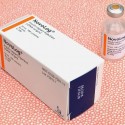


I like this article, I need to give this melatonin a try.
Hello Lisa! Nice to know you liked my article:)
I took Ambien but it helped only at the beginning…When I realized I needed to increase dosage to get the effect, I decided to search for some other treatment. And my doctor prescribed Vistaril, fortunately, it really helped! I’m glad that it’s non-addictive and helps me to sleep normally.
I had some sleeping problems and, as I didn’t want to take pills, I decided to treat my issues with other remedies. I started spending much time outdoors, going to the gym daily, avoiding caffeine and sugar, and meditating. After about 10 days, I noticed positive changes, it became much easier to fall asleep. After 2 weeks more, I got rid of my insomnia.
Maybe, my experience will help other people though I understand that some people may really need pills.
I think it’s always best to fight problems in natural ways, but sometimes doing so is just too difficult. Thanks for the article, I found some helpful info to fight my insomnia.
Hello Gina! You’re welcome! Hope you’ll succeed.
woah, this affects so many of us 🙁
Hi Elizabeth! Yes, unfortunately, lots of people suffer from sleep disorders.
I think my son has ADHD. Is it treated only with medicine? Can I do something else to help him?
Remeron is really helping me, but how many days should I take it?
Hello Liza! The dose of any pills should be prescribed by a doctor.
My teenage daughter suffers from sleep deprivation. Is it allowed to give her sleeping pills? Which of the pills from your article would you recommend?
So, if I start taking sleeping pills, I should be drinking them all the time?